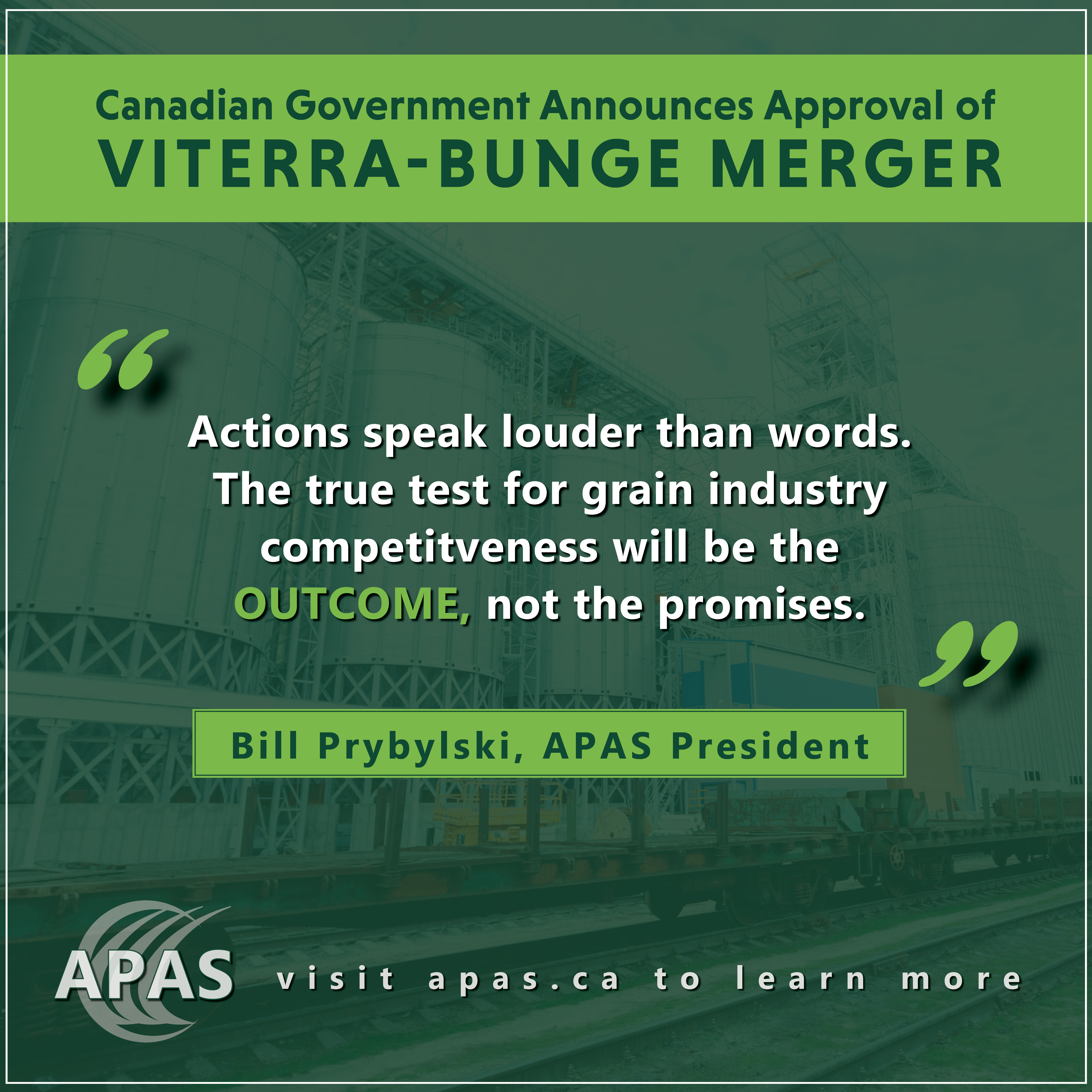APAS Weighs in on Government's Bunge-Viterra Merger Decision
Regina, SK – In response to the recent government decision on the Bunge-Viterra merger, the
Agricultural Producers Association of Saskatchewan (APAS) today voiced its views, emphasizing that
while some steps have been taken, more focused action is needed to address its original concerns
regarding industry competitiveness and sustainability.
The decision to approve the merger between Viterra Limited and Bunge Global SA by the Canadian
government, seems to partially address farmer’s original concerns about potential negative impacts of
the merger. However, the effectiveness of the imposed measures will need to be evaluated over time to
ensure they address the concerns.
APAS President, Bill Prybylski, expressed cautious optimism, saying, "While we acknowledge the
government's efforts in addressing the concerns raised by Saskatchewan farmers in its decision, it is
essential that these conditions are more than just words on paper. Farmers need real action that
translate into enhanced competitiveness and sustainability in the grain industry."
Prybylski emphasized the need for ongoing monitoring and adjustments to ensure the policy truly
benefits those it intends to serve." The government's decision has begun to address critical issues we've
raised, particularly around the need for enhanced competitiveness and sustainability for farmers.
However, achieving real progress requires these policies to move beyond initial promises towards
practical and impactful outcomes."
The decision does not directly tackle the projected $800 million financial loss to farmers or control over
45% of Vancouver Port’s capacity, opting instead for conditions like independent director nominations
to mitigate anti-competitive risks.
Key details about Bunge's involvement in the Regina canola crush project were omitted, focusing on
general competition and operational measures. Furthermore, by implementing strategies to enhance
competition in the canola sector and limit Bunge's dominance in grain operations in G3, the decision
indirectly seeks to safeguard farmers against fluctuating margins, high input costs, and ensure a
competitive, transparent supply chain.
APAS calls on all stakeholders to stay engaged and provide feedback on the practical impacts of these
policy changes as they unfold. The association is committed to ensuring that Saskatchewan's agricultural
sector remains vibrant and competitive on both a national and global scale.
-30-
For more information, please contact:
APAS Communications
Communications@apas.ca




